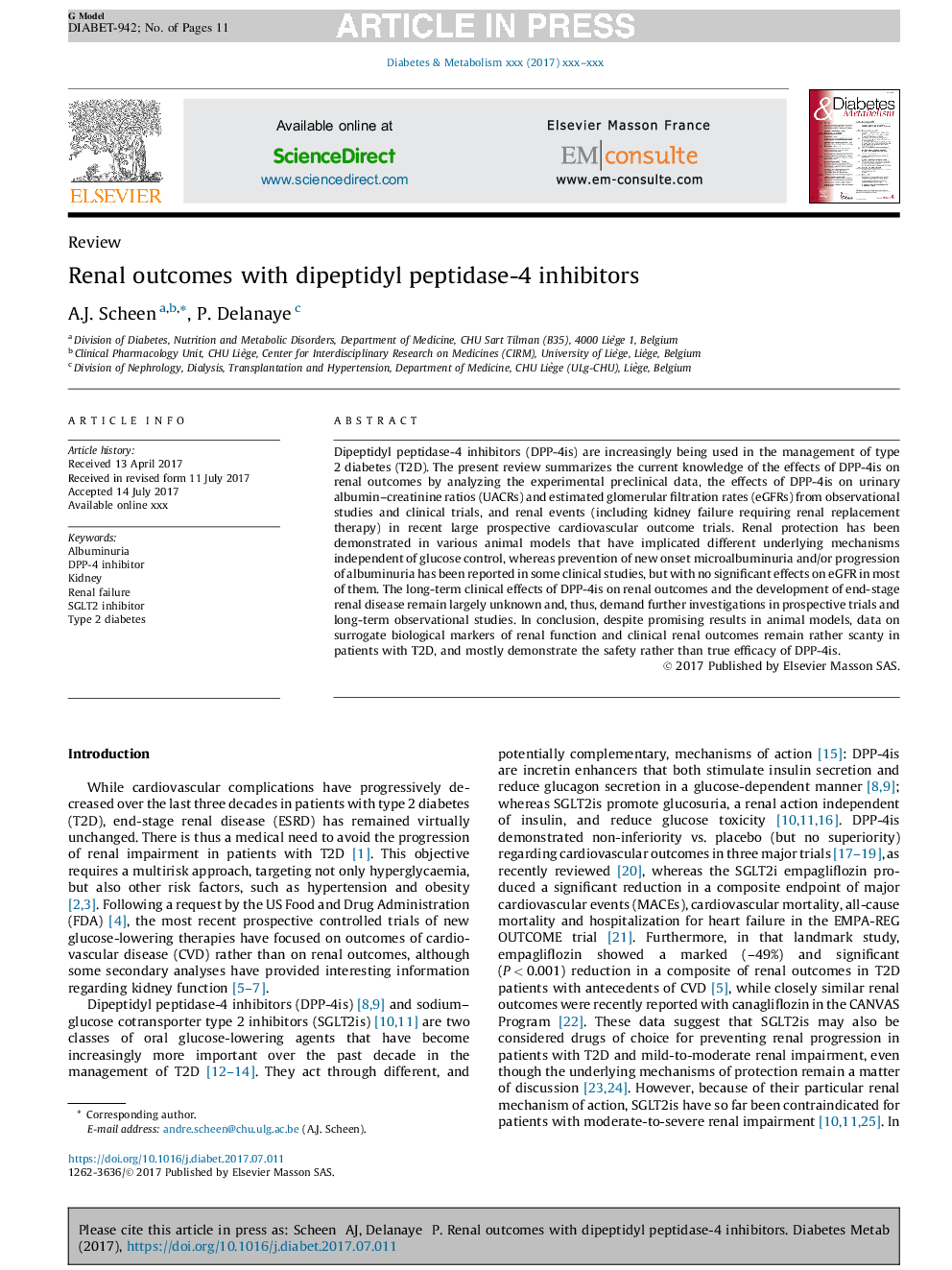| Article ID | Journal | Published Year | Pages | File Type |
|---|---|---|---|---|
| 8721599 | Diabetes & Metabolism | 2018 | 11 Pages |
Abstract
Dipeptidyl peptidase-4 inhibitors (DPP-4is) are increasingly being used in the management of type 2 diabetes (T2D). The present review summarizes the current knowledge of the effects of DPP-4is on renal outcomes by analyzing the experimental preclinical data, the effects of DPP-4is on urinary albumin-creatinine ratios (UACRs) and estimated glomerular filtration rates (eGFRs) from observational studies and clinical trials, and renal events (including kidney failure requiring renal replacement therapy) in recent large prospective cardiovascular outcome trials. Renal protection has been demonstrated in various animal models that have implicated different underlying mechanisms independent of glucose control, whereas prevention of new onset microalbuminuria and/or progression of albuminuria has been reported in some clinical studies, but with no significant effects on eGFR in most of them. The long-term clinical effects of DPP-4is on renal outcomes and the development of end-stage renal disease remain largely unknown and, thus, demand further investigations in prospective trials and long-term observational studies. In conclusion, despite promising results in animal models, data on surrogate biological markers of renal function and clinical renal outcomes remain rather scanty in patients with T2D, and mostly demonstrate the safety rather than true efficacy of DPP-4is.
Related Topics
Health Sciences
Medicine and Dentistry
Endocrinology, Diabetes and Metabolism
Authors
A.J. Scheen, P. Delanaye,
